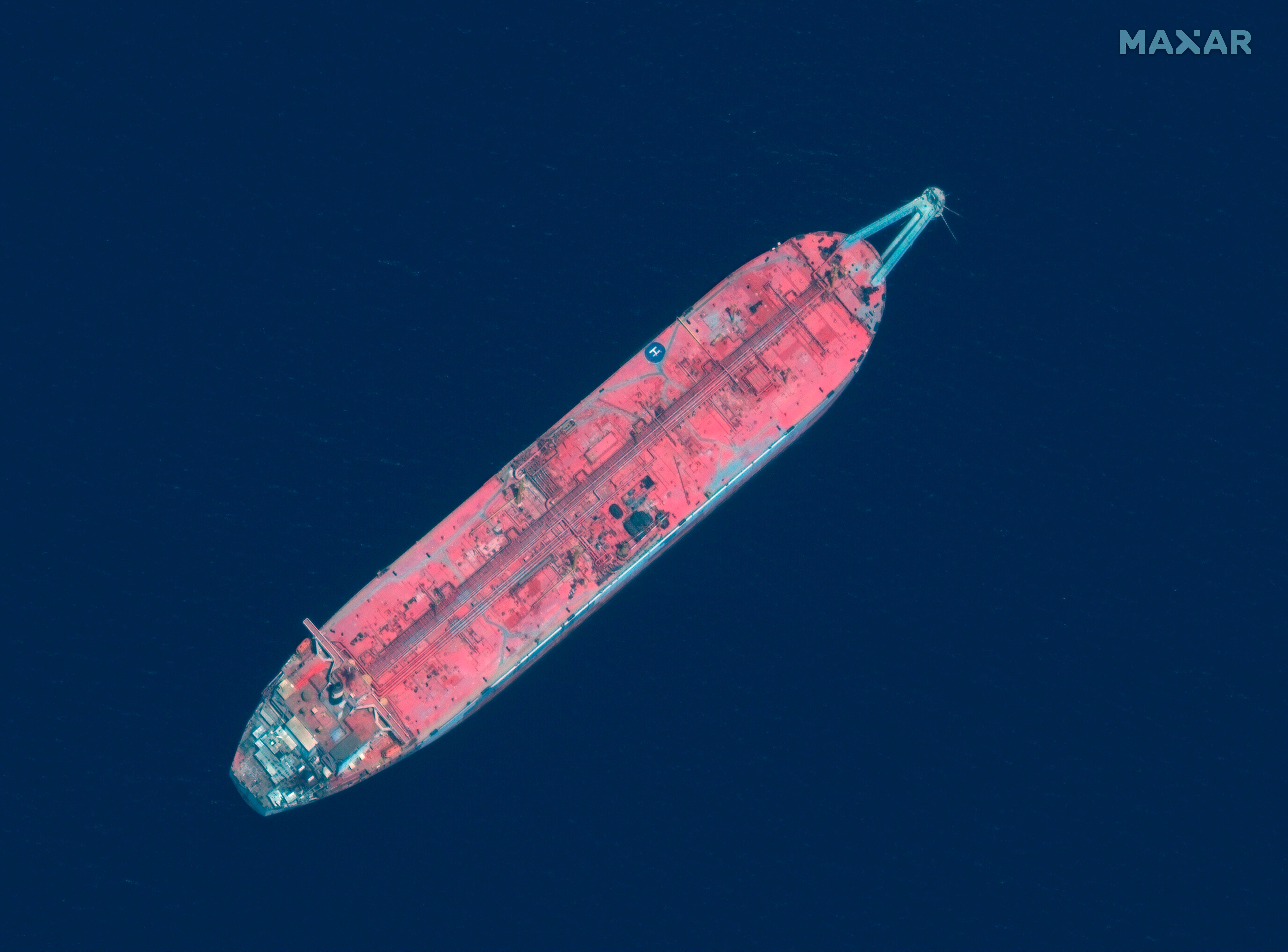UN says agreement in principle on Yemen tanker oil transfer
The U.N. humanitarian chief says an agreement has been reached in principle on a U.N.-coordinated proposal that would transfer more than 1 million barrels of crude oil from a tanker that has been moored off the coast of war-torn Yemen since the 1980s to another ship

An agreement has been reached in principle on a U.N.-coordinated proposal that would transfer more than 1 million barrels of crude oil from a tanker that has been moored off the coast of war-torn Yemen since the 1980s to another ship, the U.N. humanitarian chief said Tuesday.
Martin Griffiths told the U.N. Security Council he was pleased to report the recent progress in efforts to resolve the issue of the FSO Safer, whose long-term presence in the Red Sea has raised fears of a massive oil spill or explosion that could cause an environmental catastrophe.
Griffiths gave no details, but Hans Grundberg, the U.N. special envoy for Yemen, told reporters later that progress, “as always in Yemen, needs to be solidified in order to be taken forward.”
Yemen has been convulsed by civil war since 2014, when Iranian-backed Houthi rebels took control of the capital and much of the country’s north, forcing the government to flee to the south, then to Saudi Arabia. A Saudi-led coalition entered the war in March 2015, backed by the United States and United Arab Emirates, to try to restore President Abed Rabbo Mansour Hadi to power.
The tanker is a Japanese-made vessel built in the 1970s and sold to the Yemeni government in the 1980s to store up to 3 million barrels of export oil pumped from fields in Marib, a province in eastern Yemen that is currently a battlefield. The ship is 360 meters (1,181 feet) long with 34 storage tanks.
The Houthis control Yemen’s western Red Sea ports, including Ras Issa, just 6 kilometers (about 4 miles) from where the Safer is moored, and the U.N. has been negotiating with the rebel group for years to try to get experts on the tanker to examine it.
Internal documents obtained by The Associated Press in June 2020 showed that seawater had entered the engine compartment of the tanker, causing damage to the pipes and increasing the risk of sinking. According to the AP report, experts said maintenance was no longer possible because the damage to the ship was irreversible.
The environment group Greenpeace released a report on Jan. 27 listing the environmental, humanitarian and economic impacts of a potential oil spill.
Paul Horsman, project leader of Greenpeace’s Safer response team, said the group is calling for the deployment of a containment boom around the tanker as a first line of defense. Booms are interconnected floating barriers that are usually spread across the water to stop a major oil spill.
But Horsman stressed: “The only solution is to move the oil safely from Safer to another tanker.”
Chris Johnson, a U.N. senior policy adviser who was present at the Greenpeace report’s Jan. 27 release, said the U.N. is already working on bringing a boom from Djibouti to Yemen’s main port at Hodeida and is trying to locate a suitable vessel to which the oil could be transferred.
The U.N. is also pursuing diplomatic efforts to reach an agreement between the Houthis, the Saudi-led-coalition and the Yemeni government to resolve the matter, she said.
Subscribe to Independent Premium to bookmark this article
Want to bookmark your favourite articles and stories to read or reference later? Start your Independent Premium subscription today.
